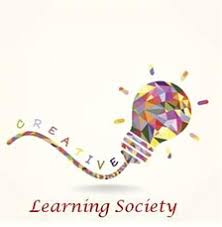Learning is critical to the future of our world and yet our current education systems are facing unprecedented challenges.

Traditional education systems alone, despite the essential role they have played, and will continue to play, in learning, are simply not capable of serving the world’s growing and changing needs.
People need to learn and relearn throughout their lives. Learning must increasingly focus on interdisciplinary collaboration and 21st century skills such as critical thinking and problem solving
New technologies increase possibilities for learning throughout life, have the potential to improve access, and intensify and spread the process of knowledge creation thus emerging the concept of learning society.
Lifelong learning offers a holistic perspective on the role of education in a person’s life cycle. It affirms that learning, as a continuous process in life, plays an essential role in enabling individuals to adapt to, and deal with, new challenges and changes in their life and surrounding environment.
The learning society concept refer to a strategy to involve society as a whole as a participant and actor in education.
The notion of the learning society underscores learning as an activity, rather than something tied to a specific place or an institutional setting.
It emphasises the social context, purpose and character of learning and its existence both inside and outside educational institutions.
More importantly, the concept of the learning society highlights the exigency of learning occurring not only within, but also out of, and around, formal institutional settings.
The learning society encompasses:

- Stimulates a culture of learning throughout life.
- Aims to develop motivated, engaged learners who are prepared to conquer the unforeseen challenges of tomorrow as well as those of today.
- Takes learning to the learner, seeing learning as an activity, not a place.
- Believes that learning is for all, and that no one should be excluded.
- Recognises that people learn differently, and strives to meet those needs.
- Cultivates and embraces new learning providers, from the public, private, and non-governmental (NGO) sectors.
- Develops new relationships and new networks between learners, providers (new and old), funders, and innovators.
- Provides the universal infrastructure they need to succeed – still physical but increasingly virtual.
- Supports systems of continuous innovation and feedback to develop knowledge of what works in which circumstances
In human life cycle in today’s world, the traditional emphasis on building the foundation of basic knowledge and competencies and acquiring the intellectual and technical tools of learning in the first quarter of life has to be complemented by lifelong learning in a learning society where all participate in and contribute to learning throughout life.





